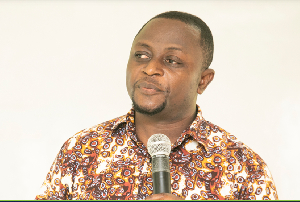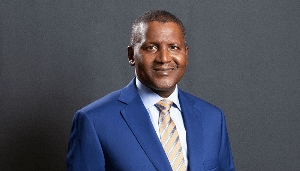Senior Lecturer of Pedagogy at the University of Education, Winneba, Dr. Richardson Addai-Mununkum, has lauded the National Service Authority (NSA) and Transforming Teaching, Education & Learning (T-Tel) pedagogy programme.
The lecturer indicated that it has exceeded expectations in transforming non-teaching graduates into potential educators.
Dr. Addai-Mununkum expressed his satisfaction with the programme's progress, citing it as a major step towards addressing the challenges of teacher education in Ghana.
Impact
Speaking about the programme’s impact, he noted that it was initially ambitious to expect two weeks of training to prepare graduates for a profession that typically requires four years of university study. "We came in with national service personnel who had no prior teaching experience, and it was an ambitious attempt to turn them into professionals. Given the limited timeframe, we weren’t expecting them to grasp it as they have, but we are very excited with the outcome," he stated.
According to Dr. Addai-Mununkum, a significant hurdle was motivating some participants who were initially uninterested in teaching. The programme, he said, managed to enhance a positive attitude towards teaching by emphasising its noble role and showing the joy and fulfillment that can come from educating others. “First, we had to make them appreciate that teaching is a noble profession, something they can aspire to. Once we overcame that hurdle, they quickly adapted, and we are thrilled to see them excited about teaching,” he added.
He opined that through practical, small-group activities, participants were encouraged to lead discussions and develop classroom management skills, gradually easing any initial fears. "Many trainees overcame stage fright and other doubts through these hands-on experiences. They've seen that teaching can be fun and impactful, leading some to rethink their perception of the profession," he observed.
Future
Touching on the programme’s future, Dr. Addai-Mununkum called on teacher education institutions to adopt similar learner-centred approaches to keep students engaged in their training.
He emphasised that the programme’s annual reviews have been key in identifying ways to improve the curriculum. "I hope that with increased funding, the programme can admit more participants and possibly extend beyond national service personnel to include unemployed graduates interested in teaching careers," he stated.
He further indicated that participants are not left unsupported after their training, saying, "The programme offers a pathway to a specialised postgraduate diploma, available at four public universities, which leads to teacher licensure.
Dr. Addai-Mununkum encouraged graduates to embrace the opportunity to solidify their career in teaching, highlighting that they can play a vital role in shaping future generations. "They have an opportunity to make a difference. My admonition to them is to go out there and be change agents in every school they find themselves," he advised.
Regional News of Monday, 18 November 2024
Source: Amanda Atunah, Contributor

















